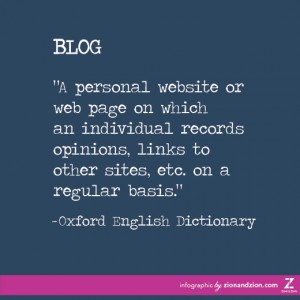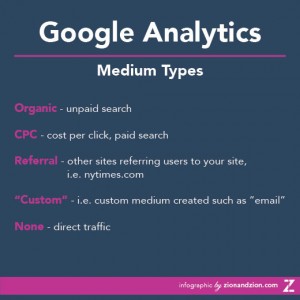Blogging For Business

The word blog has gained a lot of popularity over the past couple of years. Added to the Oxford English Dictionary in 2003, they have modestly defined the word “blog” as being:
“A personal website or web page on which an individual records opinions, links to other sites, etc. on a regular basis.”
This definition is true, but it only scratches the surface of what a blog can fully entail. Blogging is all about content, content strategy, and content development. Researching and understanding what types of information your users/customers are looking for, and creating new and unique content for your blog that will ultimately answer those questions, is key. Not to mention the importance of staying up-to-date with the latest changes to Google’s search algorithm, ensuring that the content strategy is always in line with the latest updates.
The Basics of Blogging
Before jumping into understanding how a blog can benefit your business, it’s important to note that there are two key types of blogs: personal blogs and business blogs.
Personal Blog
Personal blogs are fun to manage, fun to write for, and are often done so as a hobby. They are typically opinion based and can focus on nearly any topic or theme you could ever think of. You can blog about anything that interests you—in fact, you can even blog about things that disinterest you, things that upset you, or things that annoy you. When it comes to blogging, the world is your oyster, and in this metaphor, the oyster is the Internet. Personal blogs, while they can be organized and structured, don’t require a certain number of articles to go out each month, nor do they require hitting a certain word count, thus giving them a more relaxed and laid back feel. They are there for people interested in the topic of the blog to read, but are not striving for a continuous increase in traffic.
Business Blog
Business blogs are similar to personal blogs in many aspects, they focus on one topic or theme—typically something related closely to the business—are opinion based, and are written to be informative, interesting and topical. While personal blogs are used for fun, business blogs are used for, you guessed it, business. From improving SEO (search engine optimization) and increasing traffic to your site, to positioning your business as an industry expert, having a successful and well strategized blog on your website can provide you with a long list of benefits.
How Blogging Can Benefit Your Business
Drive Traffic Through Blogging

To get down into the nitty-gritty details of fully understanding how a well thought out content strategy can drive traffic to your website, let’s take a simple, yet real life example. Let’s say you own a local flooring shop in Phoenix, AZ. You sell tile, hardwood, carpet and laminate flooring. You’ve recently had your website redesigned and it looks great, but unfortunately, you aren’t seeing a lot of traffic coming through your site. What to do? Set up a blog on your site, and start creating unique and valuable content. Think of the questions people ask when they come in or call you up on the phone. Then think of all of the products and services you offer. From these two lists, you can start creating blog posts based on the common (and not so common) questions you are asked, as well as on all of the products and services your business may offer. Just keep in mind that it is crucial to write in a way that provides your customers with useful information. Simply writing for search engines will provide users who actually land on your content with a poor experience, may be picked up by the search engines and recognized as “spam,” and won’t provide anything useful for those users who already come to your site.
A lot goes into creating a content strategy and ultimately, a content calendar. By starting with these two lists, you will find yourself off to a great start. Now, as your site begins to grow with more and more content, Google (and other search engines) will start to view it as a more valuable source. The ultimate goal is to have a potential customer or client perform a Google search for something relevant to your business, for instance: “What is the difference between hardwood and laminate flooring?” or “hardwood flooring in Phoenix” and land on your site, or land on a specific blog post on your site. Both of which would act as the source for the answer to these search queries.
Improve SEO Through Blogging

Blogging directly relates to SEO (search engine optimization). My colleague Ben Holland explains just how search engines work in his blog post dedicated entirely to SEO in which he goes into much more detail on the subject than I will here, but when it comes to blogging, the biggest takeaway is that unique and quality content is king. When someone performs a search in a search engine, the search engine uses its ever changing algorithm to provide the searcher with the most appropriate and relevant information possible. If your website has five pages, each with a mere 200 words on them and some basic contact information, there is not much content for the search engine to “/crawl.” Thus, there are not many instances in which your site will be viewed as an authority by the search engine, meaning it will likely rarely, or never, get ranked for keywords or phrases that potential customers may be searching for. On the other hand, if your website has 100+ pages, a majority of which surpass 1,000 words, complete with unique content and keyword focused titles, images and page URLs, search engines have a lot more content to “crawl.” This means there will be many more instances in which your website will rank for keywords that potential customers are searching for.
Position Yourself as an Industry Expert Through Blogging

By creating quality, useful and unique content for your business’s blog on a regular basis, your site will start to see an increase in organic traffic, or traffic that comes to your site through /organic search. While this certainly doesn’t happen overnight, as more and more content is added to your site, the traffic will pick up, allowing your business to start positioning itself as an industry expert and leader in the field. If someone types a question into Google and your site appears as a high-ranked search result, that person—given that the content they land on is what they were looking for—will start to form a relationship with your brand.
Create Relationships Through Blogging

By positioning your blog and therefore your business as an expert in the industry, you’ll begin forming relationships with potential customers at every stage of the purchasing funnel; those performing their initial research, all the way down to those looking for the exact company they want to do business with.
One of the great things about a business blog is that based on your overall content strategy, keyword research and chosen titles and topics, you can have some (though not complete) control over what stage of the purchasing funnel the users you are bringing onto your site are at. For instance, going back to the local flooring supply store. If you want to reach potential customers who are higher up in the purchasing funnel so that you can start to form a relationship early on, you can work your content strategy to reflect that by writing posts on more broad topics that are focused around areas like design and interior decorating, rather than simply focusing on the facts about the different flooring types. However, if reaching customers that are further down the funnel is more important to you, then focusing in on those more detailed facts about the different flooring types and services your store offers—as well as location based keywords when appropriate—will help you to accomplish this.
Improve UX (User Experience) Through Blogging

Not only can blogging help increase your site’s traffic by driving more organic traffic, but a successful business blog can also improve your existing users’ experiences on the site. Whether users are looking for the answer to a specific question, or for general information to learn more about your company and what you have to offer, a well-run blog can achieve both. When users land on your site, no matter the medium—whether from organic search, paid search, direct, a referral, or something else entirely, such as an email or social media post—providing them with the necessary content (and with easy access) will help improve their experience on your site.

This can be done through the use of a blog, an integrated blog that pulls posts through to relevant internal pages, and even the general content that is found throughout the rest of your website.
Connect Social Media Back to Your Site Through Blogging


Depending on what platform your blog is built on, you have the ability to add in social media share buttons directly to your blog. This allows your users to share the content on social media platforms straight from your website, bring in more traffic, repurpose the content created for your blog, and provide your brand more visibility. WordPress has quite a few great social media plugins. /Small Business Trends listed out their /top 10 social media plugins for WordPress.
As I just mentioned, blog content can easily be repurposed for social media and email content. There is no point in reinventing the wheel; if you have unique and high quality content being distributed through your blog, it makes sense to repurpose that content into social media posts and emails sent out to your distribution lists, driving traffic back to your website.
Conclusion
Whether blogging for business, or blogging for personal enjoyment, one of the most important things to remember is to have fun with it. If blogging is becoming a chore for you, then you may not be doing it the right way. And more importantly, that chore-like attitude will shine through in the content you develop, leaving your readers with boring or sub-par content to read. If done well, a business blog can drive traffic to your site, improve your site’s SEO, position your business as an expert in the industry, improve your site’s UX, integrate social media back to your website, and vice versa.
